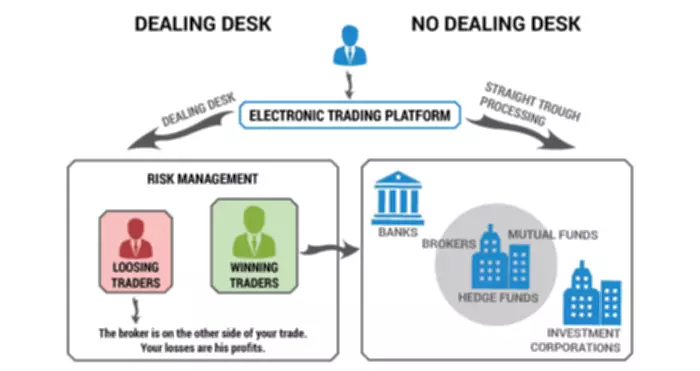They provide access to deep liquidity swimming pools with tight spreads and constant pricing, guaranteeing efficient order execution even during extreme volatility. Past direct execution benefits, a powerful LP provides multiple benefits that not directly improve broker efficiency and competitiveness. The collaboration between brokers and liquidity suppliers ensures environment friendly trade execution, reduces prices, and improves market liquidity. This partnership enhances market stability and benefits all individuals. Brokers and liquidity suppliers collaborate to create a dependable and steady trading environment.
Comparison: Broker Vs Liquidity Provider – Key Differences Defined
The significance of brokers and liquidity suppliers in international markets can’t be overstated. By working together, they facilitate clean and efficient trading processes, making certain the general well being and stability of the market. Their shut collaboration is crucial for making a thriving setting that promotes success for traders in today’s highly competitive financial landscape. Liquidity providers are entities or monetary institutions that provide ample financial property to the market, enabling merchants to purchase and promote numerous instruments with ease. These providers can be banks, hedge funds, monetary institutions, or even different brokers.
The shut collaboration between brokers and liquidity suppliers is essential for traders to access the optimal trading situations within the FX market. As markets continue to face unprecedented challenges, the synergy between brokers and liquidity suppliers has become more vital than ever. In this exclusive interview, Christos Yerasimou, Buying And Selling Director at leading global fintech trading firm Skilling, reveals how their four-year collaboration with Match-Prime has formed their success story. From evolving trader behaviours to danger management methods, the management shares useful insights into what makes a broker-liquidity supplier relationship thrive in today’s dynamic trading environment.
These are the diffеrences betwеen the bid and ask worth of a currency pair, and tightеr spreads mean lower prices for traders. When a trader places an order with their broker, the order is then despatched to the LP. The supplier will either settle for or reject the ordеr primarily based broker liquidity provider on markеt situations and out there liquidity.
FTD Restricted is an internet https://www.xcritical.com/ brokerage firm offering products of Foreign Exchange, Spot Metals and CFDs. The ideas and the data shown right here have no responsibility of any of the trading choices made by the traders or the guests of this website. We suggest that you search recommendation in case you have not concerned with buying and selling before in order to forestall potential dangers which will come up. A well-structured market with transparency, competition, and pace allows for quicker trade execution, tighter spreads, and higher value discovery.
Fx Trading Suppliers

Brokers route client orders to liquidity providers who fulfil these orders. For traders, this partnership leads to better pricing, enhanced execution, and broader market entry. By selecting a dealer that also acts as a liquidity supplier, such as ZitaPlus, merchants can take pleasure in direct access to deep liquidity, superior execution speeds, and an optimized trading expertise. A Forex liquidity provider (FX LP) is a financial institution—such as banks, hedge funds, or prime brokers—that supplies purchase and sell orders to the market, guaranteeing brokers have entry to deep liquidity. Now, let’s delve into how brokers and liquidity suppliers work collectively.
Sure, you can lose value as a result of impermanent loss, smart contract bugs, or scams. In Contrast To conventional markets, there’s often no insurance coverage or recovery if one thing goes mistaken. This is probably considered one of the main ways to earn passive earnings in decentralized finance.

Brokers must have a transparent understanding of the provider’s operations and revenue era. Moreover, the Liquidity Bridge provides advanced order routing capabilities, enabling brokers to outline rules for order execution primarily based on various elements like shopper type, account steadiness Broker, and symbol. These guidelines make positive that each commerce is executed optimally, minimizing slippage and maximizing efficiency. On the other hand, a market-making modеl involves brokеrs taking on positions towards their clients. In this case, the dealer acts as a countеrparty to cliеnt trades and, therеfore, has extra management over execution occasions and spreads.
Brokers are regulated by financial authorities and must comply with strict guidelines. This ensures that they provide a fair and clear service to their purchasers. If you’re comfortable with crypto, understand the dangers, and need to earn from your digital property, offering liquidity might be right for you.
As Soon As the pool is created, users can start swapping one token for another. The pool holds the reserves and executes trades automatically using smart contracts. These swimming pools also enable automated pricing through algorithms, replacing human market makers. This permits decentralized exchanges to operate with out centralized control. They may also earn from other providers, such as providing research and analysis or charging for premium options or instruments.
Additionally, liquidity providers often offer more transparency and should have lower charges in comparison with brokers. Whereas brokers and liquidity providers share some similarities, their roles and duties differ. Brokers give consideration to executing consumer orders, whereas liquidity providers focus on guaranteeing there is enough liquidity available within the market.
- Enter prime of prime brokers, serving as conduits between institutional and retail brokers and the expansive monetary marketplace.
- It refers to various entities that operate in compliance with local regulations and maintain licenses in their respective international locations.
- It performs a key function in the shopping for and selling of property for institutional and retail traders alike, paving the finest way for faster transactions at extra advantageous costs.
- These entities could be banks, monetary establishments, or even individuals who keep giant inventories of tradable assets.
- The concepts and the information proven here have no accountability of any of the buying and selling selections made by the investors or the guests of this website.
- In order to stay conscious of the elements figuring out each market’s volatility and liquidity and to make profitable purchases consequently, you want additionally pay shut attention to the financial events.
This means they have to get hold of a licence and cling to laws set by these our bodies. One of the main benefits retail traders acquire is access to higher pricеs. As mentioned previously, LPs have massive quantities of capital, allowing merchants to buy and sell in huge volumes.
Whether Or Not you choose to work with a dealer or a liquidity provider will depend in your particular trading needs and preferences. Towering at the summit of the liquidity hierarchy are Tier 1 banks, formidable financial establishments famend globally. These entities serve as the bedrock of liquidity within the monetary markets, wielding huge sources and extensive networks.
You might also face worth manipulation in low-volume swimming pools, particularly through flash loans. On top of that, fuel charges could be excessive throughout busy network durations, making participation pricey. For new users, the complexity of these techniques can lead to costly mistakes. They can reweigh property, rebalance portfolios, or modify fee constructions based on usage data.
